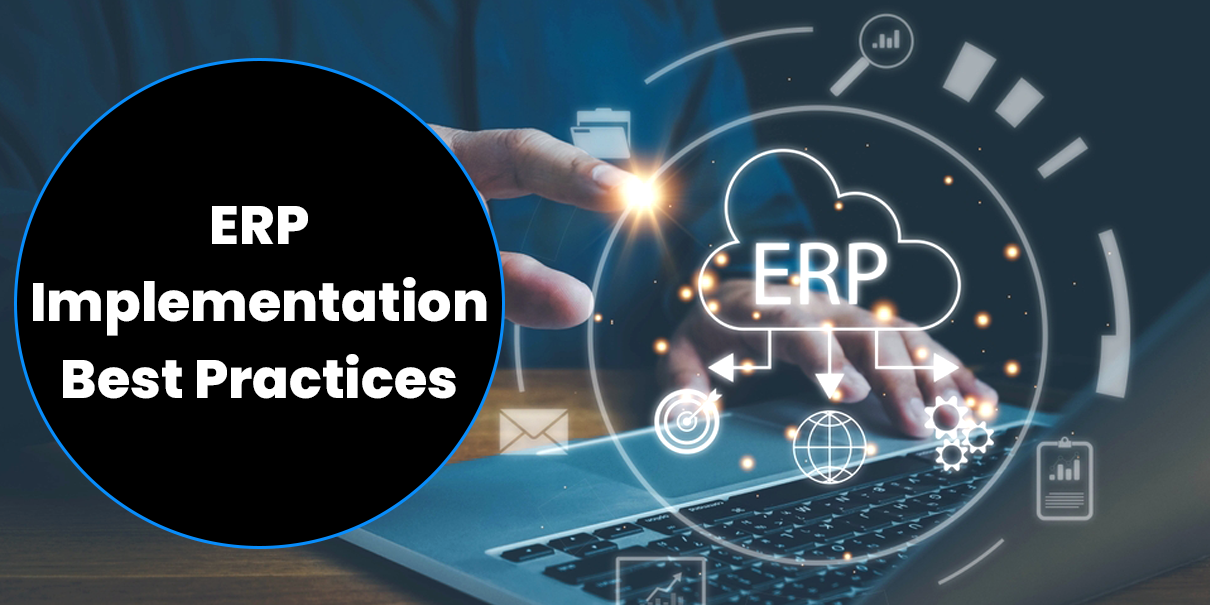Enterprise resource planning (ERP) platforms are essential for operations management at an enterprise-level firm. Most organizations adopt ERP platforms before reaching the enterprise stage in an effort to streamline and organize their workflows, assets and labor. Becoming an early adopter allows a company to develop operations that can scale quickly and predictably, with decreased new labor costs as they grow. Thus, the question becomes: “What is the best way to deploy an ERP system?”
ERP implementation best practices often involve choosing a platform that aligns with an organization’s unique business needs. Companies face two main choices: they can either 1.) purchase a pre-built out-of-the-box ERP platform from a software provider, or 2.) hire a software development company to create a solution that’s tailored to suit your business. Finding the right option is simple once you identify your organization’s priorities.
ERP Implementation Best Practices: Pre-Built vs. Custom
Pre-built ERP platforms come at a lower cost than a bespoke platform that’s created by a software development company – but you know what they say: “You get what you pay for.” The table below lists possible platform features that can be used to compare the benefits of pre-packaged versus custom software solutions.
Comparison: Pre-Built vs. Custom ERP Features
| Feature | Pre-Built ERP | Custom ERP |
|---|---|---|
| Workflow Management |  |  |
| Multi-Department Workflows |  |  |
| Centralized Finance / Asset Data |  |  |
| Internal Communication Tools |  |  |
| Secure / Encrypted Data |  |  |
| Customization to Business Workflows |  |  |
| Flexibility With Unique Business Needs |  |  |
| Ease-of-Use |  |  |
| AI Integrations |  |  |
*Some pre-built ERPs have AI integrations, but only as out-of-the-box tools – no custom AI integrations or functionality.
Out-of-the-box ERP platforms offer many of the same basic features as custom enterprise platforms, such as workflow management, centralized and secure company data, internal communication tools and effortless inter-departmental cooperation functions.
But pre-built solutions struggle to meet the unique needs of a specific business. These tools are built to meet a wide variety of needs, which makes them generally useful but generic. Ready-made platforms rely upon a complex array of third-party integrations alongside other tools, which businesses must purchase if they wish to configure a customized solution that meets their precise needs. Such products may prove challenging to use and adopt. Some may require extended implementation and deployment timelines.
Purpose-built tools are designed from the ground up to fit the needs of your business. This means they can meet a business’s ERP needs on a more comprehensive level.
In addition, software developers can update a custom platform as your operations grow in scale and complexity, making it a far more flexible tool. For easier onboarding, your dev team can tweak a custom ERP interface to reflect software features and operations already familiar to your team, thereby reducing the need for training.
Finally, expert AI software developers can add AI and machine learning functionality to automate certain workflows, provide valuable insights and generate reports. While pre-built ERP platforms are beginning to adopt basic AI automations, many fall short when it comes to maximizing AI’s full value and mitigating any disadvantages that may arise when this technology is improperly deployed. With custom platforms, developers can ensure that every AI feature has the unique context necessary to automate efficiently.
Choosing an ERP Implementation Partner
Regardless of whether or not you decide to contract with a custom software partner, you’ll need to choose the right provider. When evaluating ERP providers to partner with, consider the questions in the table below.
| Question 1: | Has this developer created platforms for clients in my industry before? |
| Question 2: | Can this developer provide the unique features my company needs? |
| Question 3: | Will this platform be easy to onboard with my existing staff? |
| Question 4: | Does this developer offer innovation in a unique manner that could prove advantageous to my business? |
If your chosen development company can answer each question positively, then you’ve likely chosen the right partner for your business. The value of custom ERP implementation – and the reason we recommend it – is that the marketplace has no boxed ERP platform offerings that can meet the customized needs of most businesses. With generalist software, there is always a compromise. Opting for truly custom purpose-built ERP software allows companies to maximize ROI.
Any good implementation plan must consider employee training, feedback from well-trained users of the system and a rollout process. A firm that can answer yes to each of these questions will not only make it easier for your firm to adopt and educate staff on the new tool but will also work side-by-side with your firm to create a comprehensive deployment plan that meets your goals within a reasonable time frame.
Choose ERP Implementation Best Practices with 7T
At 7T, we use a problem → solution approach to creating custom ERP solutions for our clients. Through our custom-built platforms, machine learning and AI technology can provide a significant operational advantage with a robust ROI. Our team will identify your organization’s challenges and pain points, oftentimes even showing up on-location for a time to embed ourselves within your business and understand your needs from a first-person perspective. Then, we’ll architect a value-generating solution to transform your vital business processes and meet your goals.
7T is based in Dallas, Houston and Charlotte, NC. But our clientele spans the globe. If you’re ready to learn more about ERP implementation best practices, contact 7T today.










